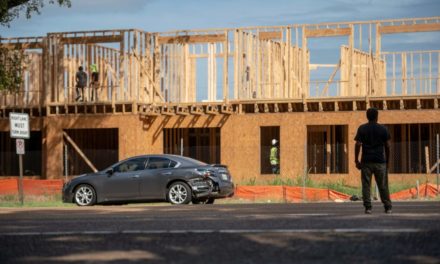Countywide reappraisal programs that are required by state law and their impact on property taxes are confusing to most citizens.
A significant number of people in local governments probably don’t understand them either.
People who like to dabble in numbers—and even some who don’t– might want to take a look at the following.
At the $4.32 adjusted certified property tax rate identified by Shelby County government, homeowners with roughly a 7 percent property reappraisal cut would pay the same taxes as they did under this past year’s $4.02 rate.
This means that people who had appraisal cuts of more than 7 percent (actually 6.944 percent before rounding) would pay lower taxes at a $4.32 rate than they did at the $4.02 rate.
And people who had appraisal increases or reductions of less than 7 percent would pay higher taxes at the $4.32 rate than at the $4.02 rate.
There would be thousands of homeowners in each group.
If the 7 cents appeals allowance included in the adjusted $4.32 rate is reasonably accurate, the total amount of reduced taxes from people with tax cuts would equal the amount of increased taxes paid by people with tax increases.
Thus the government would receive the same revenue at the $4.32 rate that it received this past year at the $4.02 rate.
This comes about because this year’s reappraisal program shows for the first time in history that the county had an overall decline in property appraisal values for tax purposes.
(The above calculations do not include the 4-cent tax rate that property owners in the county outside Memphis pay in addition to the $4.02 general county rate to cover the debt service on rural school bonds. There is a separate certified rate calculation on this 4 cents.)
The purpose of reappraisal programs is to try to equalize the tax burden among property owners based on their property values. The state law requiring the identification of the certified tax rate is to inform citizens whether the government is imposing an overall tax revenue increase.
In addition to the adjusted certified tax rate identified through a formula, county Mayor Mark Luttrell has suggested a 6-cent property tax rate increase to provide more funding for schools. (Actually county mayors have no legal authority relating to schools, but mayors have tried to dabble in that area through the years.)
If the certified rate total and the 6-cent rate increase were adopted by the County Commission, the county rate would be $4.38.
At a $4.38 rate for each $100 of assessed value, the breakeven point on increased taxes would be an appraised value cut of a little more than 8 percent (8.22 percent).
People whose appraised values went down more than 8.22 percent would have a tax cut at a $4.38 rate and homeowners whose appraisals went down less than 8.22 percent or went up would have a tax increase.
On Memphis city property taxes, Memphis news media outlets have not clearly reported whether the government has identified an adjusted certified tax rate.




I believe this is the most idiotic article ever written.
If taxes go up from $4.02 to $4.38 that’s called an increase in taxes. Your article says over and over “if your prop val went down suchandsuch percent than you would pay less in taxes at the new higher tax rates”
I understand your reasoning by implying that since your house was worth more before the higher taxes that there is a point to which you would just pay the same payment amount, but the way this is worded is a joke.
Seems you are trying to talk people into higher taxes by saying its not so bad!! Yeah it’s not so bad that the leadership in Memphis and Shelby co have basically spent themselves up to levels that can not be maintained. The crime rate is Detroit-Like and the police keep getting arrested left and right and the criminals are getting bolder. I guess that’s society’s fault mentality is catching up with Memphis.
It’s not an increase in taxes. It’s an increase in the tax rate. Those are two very different things.
As for Memphis and Shelby County spending themselves to death, it’s more of a math problem than a management problem. Our property values are too low and our per capita income is too low, and because of them, local government here has a higher tax rate than other cities simply because of these factors. In fact, when compared to other peer cities and counties, our local governments spend less per capita for services.
Many people complaining about the property tax rate in Memphis regularly compare it to lower tax rates in Nashville, Knoxville, and Chattanooga. But the difference isn’t about efficiency or smarter management. It’s merely simple math. The Nashville property tax rate is significantly lower because the average house price is significantly higher.
If Nashville had the same property tax rate as Memphis, every house in Nashville would produce $505 in property taxes more than here simply because the Nashville average house price is $164,100 compared to $99,000 in Memphis. (In Chattanooga, the average house price is $134,700, and in Knoxville, it’s $114,500.)
The difference in home prices means that although Memphis has 28,000 more homes than Nashville, Nashville still produces $141 million more in property taxes than Memphis. Or put another way, if Memphis had that much more in property tax revenues, its tax rate would be $1.71. Conversely, if Nashville had to cope with a median house price of $99,000 like Memphis, its tax rate would be roughly $7.46 – or higher than the $7.15 cumulative city-county property tax rate in Memphis.
Of course, the amount of tax freezes granted to corporations equates to 40 cents on the Memphis property tax rate, or put another way, if Memphis had those property taxes, the city rate would be $2.71.